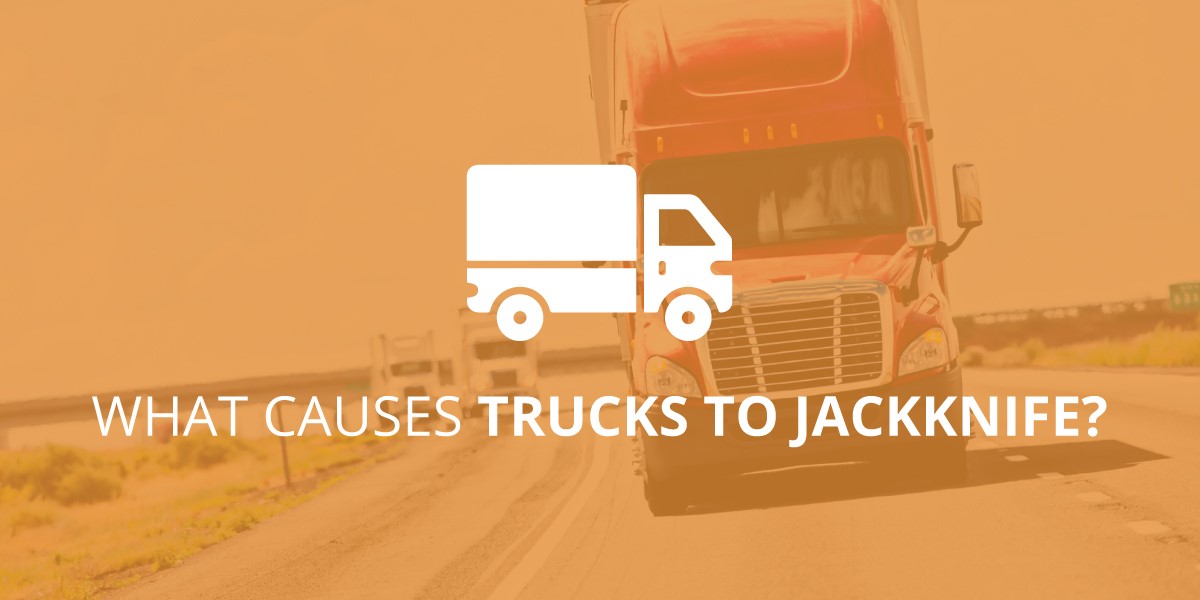Semi-trucks and other large commercial vehicles are common sights on Dallas roads. These trucks routinely navigate I-35E, I-30, Airport Freeway, John W. Carpenter Freeway, Dallas North Tollway, U.S. 75, U.S. 80, Woodall Rogers Freeway, the President George Bush Turnpike, LBJ Freeway, and many other busy roadways in the Dallas-Forth Worth area. For the most part, truckers navigate from point A to point B carefully and without incident.
However, truck accidents across the United States are on the rise as well as fatalities from these crashes. The Federal Motor Carrier Safety Administration (FMCSA) reported 107,000 large trucks were involved in injury crashes in 2017, leading to 148,000 people suffering injuries. The same year, 4,657 large trucks were involved in fatal crashes, which led to 4,761 deaths. Those included 621 large trucks in Texas. With truck wrecks, injuries, and fatalities on the rise, it is important to understand why various types of truck accidents, like jackknifing, happen and your rights after a crash.
What Is a Jackknife Accident?
A jackknife accident or “jackknifing” is a trucking industry term for when an articulate vehicle, like a semi-truck, folds in on itself. An articulated vehicle is one that has at least two parts connected by a hitch or coupling. For a semi, there is the tractor, also called the cab, and the trailer, which contains the cargo. In a jackknife accident, the trailer slides or skids to the side instead of remaining directly behind the cab. The cab and the trailer end up forming a “V.”
This usually means the truck ends up fully or partly off the road or in the way of other lanes of traffic. Often, a jackknifing truck will collide with other vehicles, or at the very least, block traffic.
In some incidents, the truck overturns or rolls, which can lead to cargo spills, fires, serious injuries for the truck driver and other motorists, and fatalities.
Common Causes of Jackknife Accidents
Jackknifing can happen for many reasons. If you were injured or lost a loved one in a jackknife truck wreck, you should work with an experienced Dallas truck accident lawyer who will thoroughly investigate the crash, determine the underlying cause of the jackknifing, and identify the liable party.
Some of the most common factors in jackknife accidents include:
Negligent Braking
Truck drivers should be well-trained and qualified to operate their commercial motor vehicles. This includes training on when and how to brake safely, even in the case of emergencies. If a trucker negligently operates the truck’s brakes, this can lead to the trailer swinging toward the cab.
Negligent Operation of the Truck
Truck drivers can be guilty of more than negligent braking. Driver distraction, fatigue, and alcohol or drug impairment all lead to negligent or reckless driving, which increases the risk of all types of truck wrecks.
Negligent Brake Maintenance
A commercial vehicle’s brakes need to be routinely inspected and well-maintained to ensure they work effectively during a haul. If a trucking company or its maintenance provider fails to properly inspect, maintain, and repair a truck’s brakes, a failure on the road could lead to a jackknife accident.
Equipment Failure
A brake failure is a common cause of jackknifing, but other parts and mechanical failures can lead to this type of accident. Another part, such as a coupling, may fail. Equipment and mechanical failures can occur due to negligent inspections and maintenance and design or manufacturing defects.
Speeding
When truck drivers operate the vehicle at too great speed for the weather, road, or traffic conditions or faster than the posted speed limit they are increasing the risk of a crash in a variety of ways. If the trucker notices a hazard, such as stopped traffic ahead, and has to slam on the brakes, a fully loaded 80,000-pound truck is much more likely to jackknife because the trailer does not slow down as quickly as the tractor.
Bad Weather and Road Conditions
Truck drivers need to be prepared to drive in all sorts of conditions, including rain, hail, fog, snow, and ice. They need to adjust their driving based on the conditions. When the weather is bad and affects visibility and traction, truckers need to slow down and brake early. Failing to properly adjust their driving can lead to losing traction on the road and losing control of the vehicle altogether, which can lead to jackknifing.
Overloaded or Improperly Loaded Trailers
Jackknifing is more common when a truck is too heavy or not balanced properly. A trucking company or cargo owner may be responsible for a jackknife accident if it overloads the trailer, improperly loads the trailer to provide for a dangerous center of gravity, or fails to properly secure the cargo, allowing it to move around in the trailer.
Were You Injured in a Jackknife Accident?
If you were injured or lost a relative in a jackknifing accident in Dallas, contact an experienced truck accident attorney at Brooker Law, PLLC today. You can reach us through our online form or by calling (214) 217-0277.
